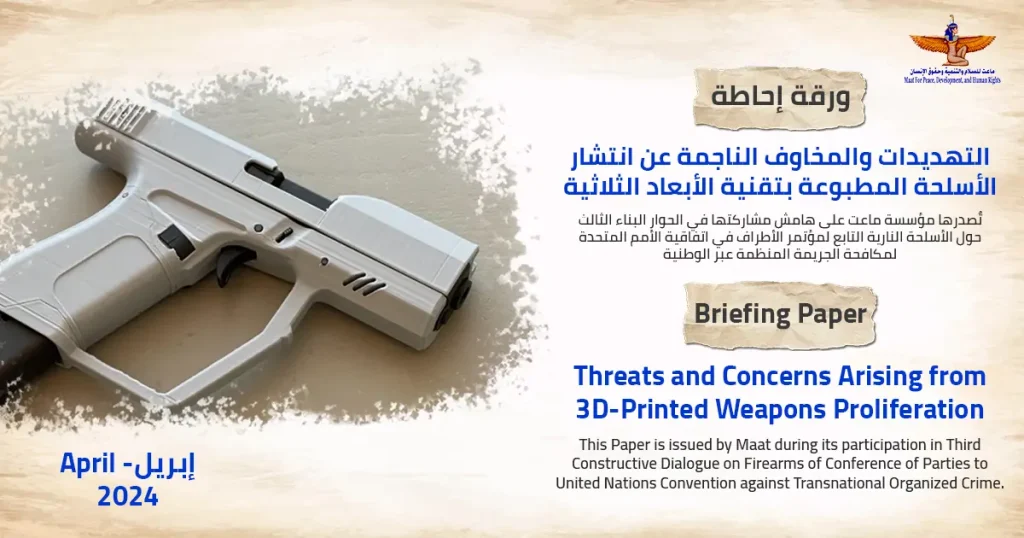Okeil: The Libyan legislation governing illegal immigration must be consistent with the Protocol against the Smuggling of Migrants
Pasha: The programs aimed tocombating racism and xenophobia, to which immigrants are exposed, must be increased
Maat for Peace, Development, and Human Rights released a new analytical paper on illegal immigration in Libya entitled “Illegal Migration in Libya between Escalation and Insufficient Laws”.
The analytical paper tracked down the phenomenon of illegal immigration in Libya and studied how the Libyan government tried to manage and counter the phenomenon, the violations committed against illegal immigrants in recent years, as well as the legal situation in Libya to combat the phenomenon and the extent of its agreement with international conventions.
In this regard, Ayman Okeil, president of Maat for Peace, Development and Human Rights, stated that Libya needs to amend its national legislation on illegal immigration to be in line with the relevant international agreements, especially those in contrast to the provisions of Article 5 and 6 of the Protocol against the Smuggling of Migrants by Land, Sea, and Air, supplementing the Convention against Transnational Organised Crime.
The human rights expert recommended the necessity of activating the roles of courts and prosecutions of illegal immigration and raising the competence of those responsible for the judicial police, members of the Public Prosecution Office, and the judges concerned with the application of the law on combating illegal immigration, each in his field of competence.
Abdul Rahman Pasha, deputy director of the African Affairs Unit at Maat, affirmed the necessity of activating regional and bilateral agreements between Libya and the neighboring countries in the field of combating organized crime, topped by the agreements concluded with Italy and the Maghreb states, especially with regard to the exchange of experiences and information and the monitoring of common borders.
Pasha further recommended the need to develop programs to combat racism and xenophobia, especially among employees of government agencies that deal with migrants and refugees, regardless of their status, as well as to allocate a sum of financial resources of public expenditure to combat the phenomenon instead of relying on international aid alone.
It is worth noting that this analytical paper is part of a series of publications released by Maat on the phenomenon of illegal immigration. The paper aims at highlighting the problem and making recommendations for decision-makers and stakeholders at the regional and international levels.
![]()











